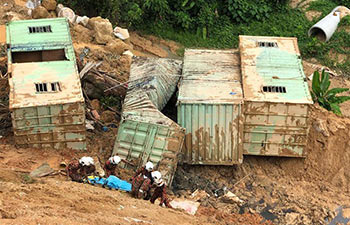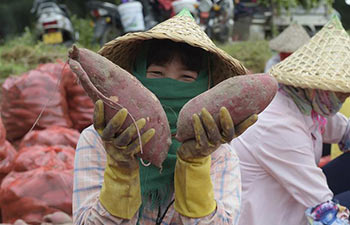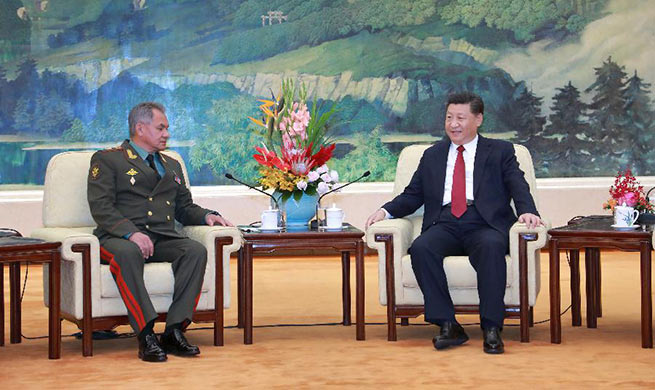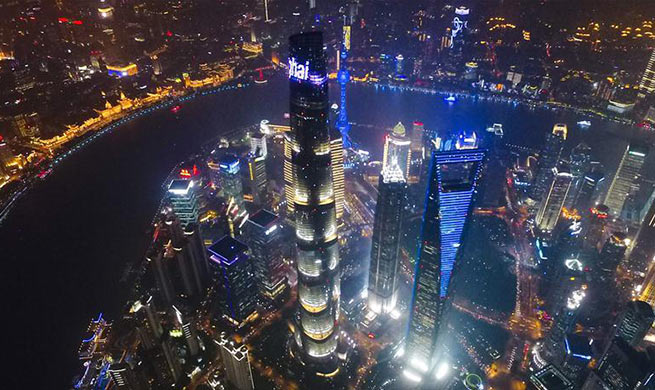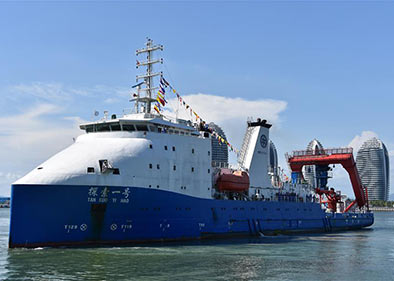BUENOS AIRES, Oct. 18 (Xinhua) -- The upcoming China International Import Expo exemplifies the value of global trade and multilateralism, according to Argentine political observer and columnist Jorge Castro.
"China's priority is to deepen its integration with the world, and next month's expo is a message loaded with meaning. It is a concrete demonstration of China's opening-up," said Castro, head of the Strategic Planning Institute in Argentina and regular contributor to Argentine daily Clarin.
China's first ever imports fair, to run from Nov. 5 to 10 in Shanghai, is also of strategic importance to Argentina, because the Asian giant's growing appetite for fresh and processed foods can be satisfied in part by Argentina's agricultural export sector.
Official statistics showed China has been the world's second-largest importer of goods for nine consecutive years and Chinese authorities expect the country to import goods worth 24 trillion U.S. dollars in the next 15 years, which has drawn the attention of exporters worldwide.
"China is the world's second-largest economy and the axis of the global demand for goods. That's why the expo is of enormous importance -- the further opening-up of China's economy," said Castro.
For Argentina, the fair will be an opportunity "to demonstrate the potential of the country's agricultural offer, along with its exporting capacity, in meat products for example, an area in which (the two countries) signed important bilateral agreements this year," he noted.
Around 50 companies will be representing the South American country at the fair, including wineries, exporters of chilled and frozen meat, and producers of honey, garbanzo, rice and olive oil, according to the Argentine Investment and International Trade Agency.
China is Argentina's leading market for agricultural produce, and the two countries are in talks to expand access to such goods as lamb and pork, honey, sorghum, wheat and cherries.
China is also Argentina's second-biggest trade partner, after Brazil, with bilateral exchanges of about 13.8 billion dollars in 2017, according to China's customs agency.
The expo should help the two countries reinforce "their comprehensive strategic partnership," said Castro.
More than 2,800 companies from 130 countries and regions across five continents have registered to showcase their products, including 200 that are on the list of the Fortune Global 500. And upwards of 160,000 buyers from domestic and foreign companies are set to attend.
According to the organizers, some 40 companies from countries such as the United States, France, Germany and Japan have already reserved their stands for the second edition of the expo.




